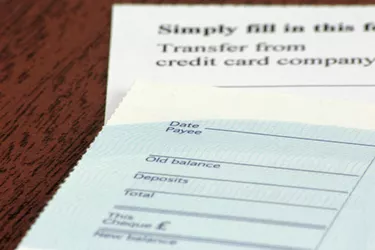
It is possible to gather information on another person's bank account. However, there are legal ramifications for seeking this information without proper authorization. If you have obtained power of attorney or you are legally responsible and liable for the person in question, the method of gathering bank account information is fairly straightforward. In some cases, no legal relationship has been attained (i.e., an elderly neighbor or friend who suffers from dementia but has no family). In this case, some additional leg work is required.
Step 1
Obtain proper legal authority in the form of a signed Power of Attorney (POA) or state appointed guardianship. If you have no biological relationship to the person in question, visit your local court clerk's office ,explain your situation, and inquire about the steps to take to become a guardian. This process can take several weeks.
Video of the Day
Step 2
Contact a lawyer to obtain proper paperwork that will allow banks in the area to provide you with information when you make an inquiry. A banking professional will not be able to tell you whether or not "Mr. Smith" has an account at their facility unless you are credentialed to inquire that information.
Step 3
Search for mail evidence of banking at a specific location. Banks typically send a statement once per month. If possible, access the person's personal papers to review any records that give light to the location of bank accounts.
Step 4
Call the banks in the area. When you have the proper credentials, you can call and ask if "Mr. Smith" has an account. Most banks will require you come into the branch to a make formal inquiry.
Video of the Day